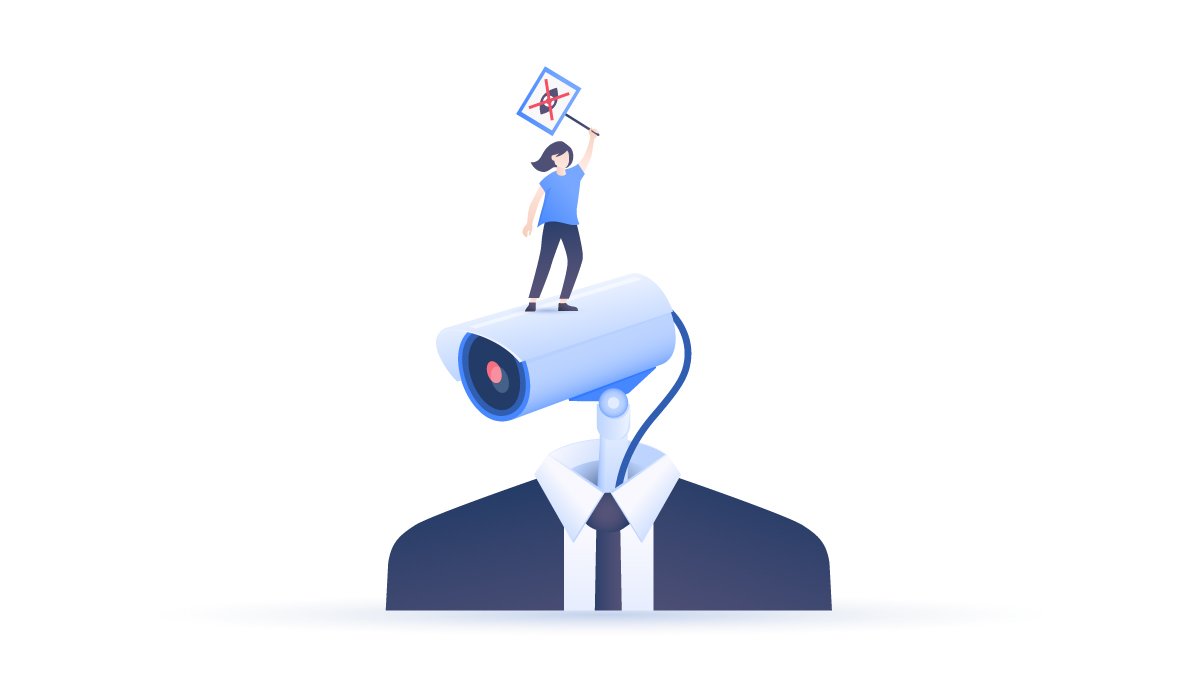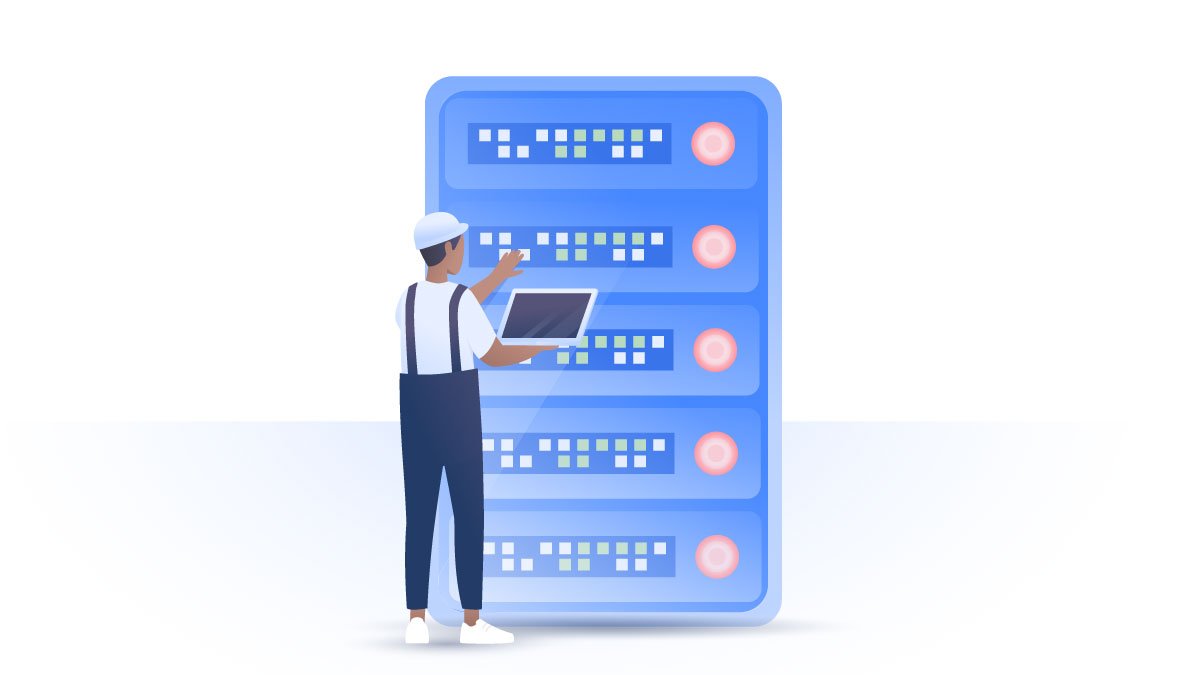Are VPNs legal?
VPNs protect your online privacy and freedom of speech, and are legal to use in most countries around the world. That includes the US, Canada, and the UK. However, a handful of governments heavily regulate or even ban the use of VPNs. Why? Because they see them as a threat to their authoritarian leadership.
Daniel Markuson
Oct 03, 2021 · 8 min read

Contents
Is using a VPN illegal?
There is no simple yes or no answer to this question. It all depends on the country you find yourself in. VPNs are a thorn in the side of any government that practices online surveillance or censorship. This is because a powerful VPN like NordVPN helps users bypass those practices by securing traffic from governments and internet service providers (ISPs).
Some governments demonize VPN services by claiming that they are primarily used for illegal activities. Others simply make VPNs illegal. In both cases, however, the goal is the same – to prevent people from enjoying the freedom the internet is meant to provide.
But focusing on illegal activities misses the whole point of using a VPN, as its positive application far surpasses the negative. There are plenty of good things VPNs can be used for, such as:
- Browsing the internet privately and securely;
- Staying secure on public Wi-Fi when travelling;
- Maintaining online freedom and evading censorship in an oppressive state;
- Accessing geo-restricted websites and services;
- Searching for information and communicating securely and privately on sensitive topics;
- Working with sensitive trade secrets or other important data that must remain secured at all costs.
Online security starts with a click.
Protect up to 6 devices with a single account
Where are VPNs illegal?
In some countries VPNs are legal only if they fulfill certain requirements, but those same requirements seriously compromise the security and privacy VPNs are intended to provide. We consider VPNs illegal in a country if:
- Part or the entire population of the country is explicitly forbidden to use VPNs;
- Using a VPN is legal only if it meets government regulations that allow authorities to monitor users.
The growth of VPNs as a global tool for security, privacy, and internet freedom is a relatively recent phenomenon. Many countries with repressive tendencies that have not yet passed any laws regulating their use may still be planning to do so. One of the best places to monitor potentially changing attitudes is Freedom House’s Freedom on the Net report.
If the country you’re visiting or living in ranks low for internet freedom but isn’t featured in our list of anti-VPN countries, it may be worth doing a bit more research to figure out whether you can use a VPN.
List of countries where VPN is illegal
China
China heavily restricts and filters its traffic by using a variety of online blocks and filters, often referred to as The Great Firewall. That’s why you need a VPN to access restricted content. Any VPN used in China must meet government regulations, which means backdoor access, logs, and censorship.
The country often blocks services that don’t comply with their rules, so this makes it a bit more complicated to use a quality VPN in China. Yet, to date, we haven’t heard of many foreigners experiencing serious issues when using VPN services in China. NordVPN is a great option to use in China – it has an obfuscated servers function, which hides the fact that you use a VPN, so it is way more difficult to curb your connection on these grounds.
Russia
In 2017, Russia banned unapproved VPN providers. Which VPNs get approved? You guessed it – those that agree to log user data and provide it to the Russian government upon request.
The country also banned the use of VPNs for accessing blocked content. But it is not illegal to use VPN for other purposes. In 2019 Russia went further in their banning policies. Roskomnadzor, Russia’s federal service for supervision of communications, gave orders to the world’s leading VPN providers to provide the Russian government with access to their servers located in Russia. This is the reason why we removed all our servers from Russia. The privacy of our users is of utmost importance to us and we cannot comply with such requirements.
Belarus
VPNs and the Tor network have been banned in Belarus since 2015, as is any technology that provides users with online privacy. The dictatorial regime tries to maintain a stranglehold on internal internet traffic to avoid the circulation of any potentially anti-governmental information.
Turkey
While VPNs are not illegal in the country, their use is restricted and the government has already blocked certain VPN providers. Turkey blocks many mainstream social media services and websites with the goal of terrorism prevention, and to avoid politically sensitive content.
Iraq
The country banned VPNs in recent years, but it never had a good reputation when it comes to online freedom. While the country's censorship measures are not as rigid as North Korea’s or China’s, they still punish VPN users. However, even censorship is a restricted topic in Iraq, so it is quite difficult to trace the most up-to-date info on VPN usage too.
UAE
While VPNs are not restricted in the UAE, using them for illegal activities or accessing websites banned by the government can get you in trouble. If caught using a VPN server, users may face a fine of $136,129. UAE uses obscure wording in their laws, but it seems clear that VPN usage is strongly discouraged.
Oman
Oman explicitly forbids any encryption of communications. However, the full implementation of this law would cut off the country from the majority of the world wide web, so it is a bit of a grey area. Naturally, VPNs are forbidden too. Yet, there is a catch here too, as VPNs can be used by institutions or organizations approved by Oman’s Telecommunications Regulatory Authority (TRA).
Iran
VPN providers are legal in Iran only if they’ve been approved by the government. Naturally, those approved allow it to censor and monitor users. So, you will need to use an undetectable VPN to avoid being punished. Again, obfuscated servers can help you in this case.
Egypt
People attempting to access blocked websites on a VPN might face fines or jail time. While VPNs as such are not illegal in Egypt, you should use them cautiously and always take some extra protective measures. These might include using a double VPN feature or obfuscated servers. As always, for your own safety, you should refrain from all illegal activities while using a VPN.
Turkmenistan
VPNs are blocked completely, and any attempts to use them are detected and subjected to penalties. It is one of the more extreme cases of VPN ban. Most of the citizens can only use Turkmenet, a heavily censored version of the telecommunication network. The state also acutely surveills and monitors all your online activities. Because of such weird internet setup, even advanced VPN tools such as obfuscated servers wouldn’t help much here.
North Korea
North Korea is considered one of the most repressive countries in the world, so strict internet regulation is par for the course. The government prohibits VPN use and monitors internet access. Similarly to Turkmenistan, most citizens are only allowed to use the country's intranet. But the majority of the population doesn’t even have online access or telephone service.
Uganda
Uganda is an odd example as it attempted to block VPNs not for political or surveillance, but for more economical reasons. The country decided to tax users for using social media some years ago and citizens started using VPN service to bypass this regulation. The Ugandan government then instructed ISPs to block VPN users. Yet, many people continue to use VPNs in the country.
Is using a VPN legal in the US and Canada?
Yes, it is legal to use VPNs in both countries. However, anything that’s illegal stays illegal when you use a VPN, so you should refrain from using VPN services for illegitimate purposes. We strongly urge any users to avoid breaking any laws, regardless of whether or not they’re using a VPN.
How are VPN bans enforced?
Countries with oppressive regimes practice the following methods to enforce bans on VPNs:
- Require VPN providers to grant access to servers located in that country. VPN providers that have a no-log policy cannot comply with such demands, as that would violate their terms of service. As a result, they cannot have servers in that country;
- Use deep packet inspection (DPI). This method can be used to trace certain forms of VPN traffic, helping governments control information coming in and out of the country. It also allows them to monitor who is using a VPN;
- Impose hefty fines on or even imprison those who are caught using a VPN;
- Offer free VPNs issued or approved by the government, which compromises your security and defeats the purpose of using a VPN. This is because free VPNs, even the independent kind, need to make money somehow. So what they do is serve you ads, collect information about you and/or monitor your traffic. They can then sell this information to hackers, governments, and other third parties.
What could happen if you use a VPN illegally?
The following can happen if you use a VPN illegally:
- You can lose your internet connection. For example, an ISP might cut you off from internet if they see that you use a VPN;
- You can get a fine, which may vary from a few hundred to hundreds of thousands of dollars;
- You can be imprisoned.
This is why you should be extremely careful and use only the most reliable VPN services in such hostile environments.
How to bypass VPN blocks
If you find yourself in one of the VPN-restricting countries, you should be extremely careful when choosing a VPN provider. Do thorough research on any VPN service you plan to use to make sure it doesn’t collect your data and won’t pass anything to third parties.
For this reason, you should avoid using free VPNs as they frequently collect users’ data and don’t guarantee privacy. They also may have weak infrastructure and limited functionality. For obvious reasons, you should also by no means use the before-mentioned state-approved VPNs.
With a good VPN, changing your location is very simple. For example, if you're in China and you connect to a server in California, your data will be sent to that server before it's passed on to the website you're trying to reach. This can help you get access to the unrestricted internet.
The following functions are also extremely useful in high-risk areas:
- Obfuscated servers. This function hides the fact that you use a VPN by changing your data packets and hiding all the VPN metadata. In this case, a snooping organization won’t be able to see that you use a VPN;
- Double VPN. It will provide you with extra layers of encryption and you will have better security;
- Kill Switch. This feature won’t let you get exposed in the open as it will disconnect you from the internet if a VPN connection drops. So, you won’t get accidentally caught while browsing without a VPN;
- Large numbers of servers. If a VPN company has a large server network, you will always have the opportunity to reach a desirable virtual locale and have an alternative in case the server you connect to gets overloaded.
Your rights and VPNs
The best VPN providers, like NordVPN, stand for a free, open, and private internet. We believe that everyone has the right to express their opinion freely regardless of their location or line of work. NordVPN was designed to operate even in adverse conditions, overcoming advanced surveillance and censorship efforts around the world.
NordVPN also believes that everyone should have the right to keep their lives or any sensitive information truly private, be it from repressive regimes or hackers. Our dedicated team of engineers works hard to keep NordVPN secure from the latest threats.



